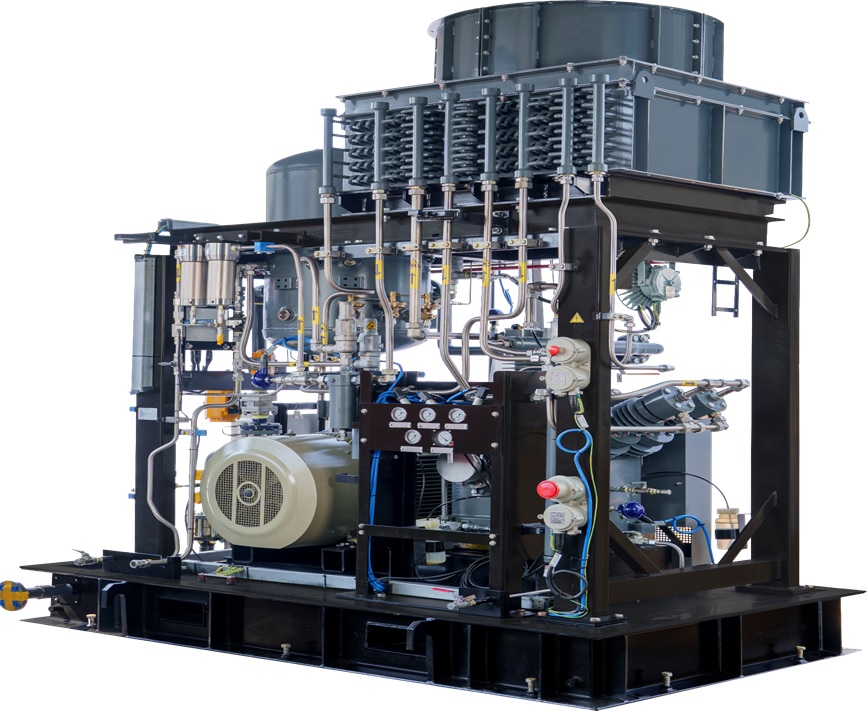Producing energy from waste is no longer a fringe idea! It is now a major part of how countries plan to reduce their reliance on fossil fuels. At the heart of this transition lies biogas. And [to make biogas truly useful] it needs to be compressed.
This is exactly where biogas compressors can be effectively utilised. The machines help prepare the gas for storage, transport or direct use. Without compression, much of the energy potential in raw biogas goes untapped.
Improving Methane Quality and Usefulness
Raw biogas contains a mix of gases. Methane is the valuable part. The rest includes carbon dioxide, hydrogen sulphide and other traces. A biogas compressor plays a central role in separating and refining this mix. Compressors make it easier to upgrade biogas into biomethane. This upgraded fuel is similar to natural gas [making it ideal for homes, factories and even as vehicle fuel options].
Compressors also support recirculating gases inside the system. This avoids wasting any methane during the refinement process. This step is vital for protecting the environment and making biogas plants more efficient.
Simplifying Energy Storage and Transport
Compressing biogas increases its energy density! This means more energy can be stored in less space. It also makes it easier to move gas from where it is made to where it is needed. The ability to compress gas allows it to be transported by cylinders or injected into pipelines. This gives energy producers more flexibility.
In many parts of India, power shortages are still a problem. Compressed biogas can be stored and used when demand is high. It provides a clean alternative during peak load hours. It also offers a way to make the rural energy supply more reliable.
Supporting Economic Viability of Biogas Projects
Biogas plants can be expensive to build and maintain! The more efficient they are, the faster they become financially viable. A biogas compressor reduces losses and adds value to the gas produced. It lowers running costs by making storage and distribution more streamlined.
In India, where small‑scale plants are common, compressors make it possible to supply nearby farms, dairies or businesses. They can even turn waste into fuel for cooking, heating or electricity. All this increases the return on investment for plant owners and encourages more people to set up biogas systems.
Helping Manage Organic Waste
India generates a huge amount of agricultural and municipal waste. Left unmanaged, this waste creates health and environmental problems. Biogas plants offer a practical solution. They digest organic waste and turn it into energy. But to make this process practical at scale, compression is essential.
Compressors ensure the gas is collected safely. They reduce the need to flare or vent excess gas. This supports cleaner operations. More importantly, they make waste‑to‑energy models work beyond the experimental stage. This makes local waste management not only possible but also profitable.
Making a Real Difference in Environmental Goals
Methane is a potent greenhouse gas. When it escapes into the air, it contributes to climate change. Biogas compressors reduce this risk. By capturing and compressing methane, they ensure that the gas is put to productive use. This is more than just efficient. It is an act of environmental protection.
Compressed biogas can also replace diesel in many industries. This transition lowers emissions and improves air quality. It can help reduce smog and airborne toxins [especially in urban areas]. In rural areas, it can improve access to clean fuel. All of this supports India’s goals for carbon reduction and energy independence.
Enhancing the Future of Renewable Energy
As India expands its energy needs, it is also exposed to additional pressure to fulfil green and sustainability standards. Compressing biogas supports this shift. It allows clean gas to be injected into the main grid or stored for industrial use. It also enables decentralised power generation.
For regions without steady electricity, compressed biogas can support micro‑grids or power local infrastructure. This model is already being tested in several parts of the country. Compressors make it possible by handling pressure levels, controlling flow and ensuring gas purity.
Concluding Thoughts
The use of a biogas compressor is not limited to enhancing performance. Rather, it is revolves around unlocking the full potential of renewable energy. In India [where energy, environment and economy are deeply linked], biogas compression is more than a technical step. It is a practical tool for a more sustainable future.






